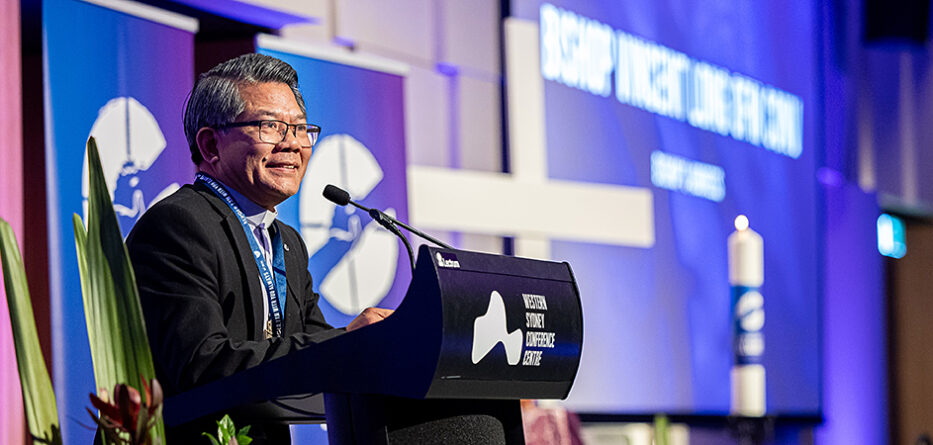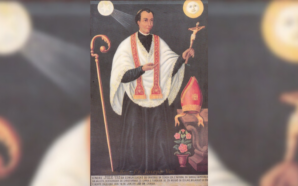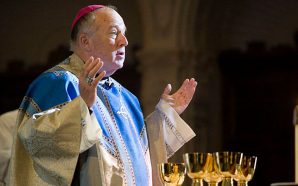Most Reverend Vincent Long Van Nguyen OFM Conv DD STL, Bishop of Parramatta
Homily for the Opening of the November Plenary of Bishops, organised by the ACBC.
Readings: Philipppians 3:3-8; Luke 15:1-10
Openness to God’s work of repairing and repurposing
Dear friends,
You might have heard of a Japanese art and philosophy called Kintsugi. When a pot or a vessel is cracked, chipped or even broken, instead of throwing it away, the Japanese have developed an art of repairing and mending the areas of breakage with lacquer or powdered gold, silver or platinum. The result can be totally unexpected. It can render a new piece that is more exquisite than it was before the break.
Analogously, Kintsugi philosophy teaches us that in life we can turn adversity into something that is beautiful and resilient. Kintsugi shows us that in time, we can heal from our wounds, embrace our imperfections, and become stronger. Kintsugi reminds us that no matter our difficulties, we can find a way to reframe and find meaning in life.
We could say that the God revealed in our sacred history is a specialist in Kintsugi. He not only fixed broken things and broken people. He repurposed them and used them in ways that we could never have imagined. Think of the fugitive Moses who was made into the liberator of the Hebrew slaves; or Ruth, the Moabite and widow who followed Naomi, her mother-in-law and became the ancestor of Jesus. We must therefore be open to the divine repurposing that could be carried out in times of disruption, chaos and loss. As the Church in this country, we find ourselves very much in the proverbial perfect storm. This liminal space challenges our sense of security, continuity and predictability. It is our openness and humility that allow us to be refashioned by the divine potter.
The Word of God today speaks to us about the God who does not let us get away with our propensity towards the comfortable status quo. He throws a curveball in our direction to wake us from the inertia and amnesia that we’re addicted to. We must not settle into complacency and forget our task of being a changing agent and a leavening force in the world.
In the first reading, Paul reflects on his radical turnaround after he began a movement of letting go, repenting and unlearning of his previous sense of self-worth. After his Damascus experience, he gradually turned away from the self-worth that was predicated on his qualifications and entitlements. He learned to pivot his life on Christ and his pattern of self-emptying. Hence, he writes “Because of Christ, I have come to consider all these advantages that I had as disadvantages.” Conversely, what he regarded as weaknesses became strength in the light of the cross of Christ.
The Gospel speaks of God’s grace empowering us to overcome our brokenness. Indeed, brokenness and extreme vulnerability is often the matrix for refashioning. The exile is a case in point. If in the Old Testament, we see glimpses of the magnanimity with which God acts against the background of primitive human morality, his self-disclosure in Jesus is even more decisive and groundbreaking.
The parable of the lost sheep and the lost coin is essentially about counting. In the Sound of Music, Maria the nun-nanny often counts the number of the Von Trapp children after a day out to ensure that everyone is accounted for. The parable that Jesus tells today carries a similar message. In God’s maternal love, he does not rest until everyone has been accounted for.
Dear friends,
Pope Francis has put this message at the centre of his agenda. The Church for him is not a museum for saints or an enclosure for the virtuous but a field hospital for the wounded. It is this radical embrace of the vulnerable that is so powerfully shown by him at places like refugee camps, prisons, slumps and hospitals.
Our culture is often committed to continuity or amnesia, even when it is time to question the benefit of the status quo and to embark on a new and more sustainable pathway. We are organised in our lives, in our society and even in our churches around order, control and predictability. We fear disruption and resist change. But this can be a negation of the Spirit who does new things within the people of God.
The call of God to us is not to settle in false certitude and security. Rather it is to travel beyond our limited horizons and discern how we can be true missionary disciples and credible bearers of the Good News. Discipleship is a journey that demands a critical discernment of the status quo and an openness to the new ways of doing things that the Holy Spirit constantly asks of us. The synodal journey is an expression of this newness.
We may be broken or cracked pots figuratively speaking. But let us submit ourselves humbly to God’s work of repairing and repurposing. May we be shaped into his instruments for the building up of Christ’s body and the force of leaven for the life of the world.








